In a few months, Marco Tulio Giraldo, a 48-year-old waste picker from Ríonegro city in Colombia, will be handed the keys to his first house. As a member owner of Cooperativa Planeta Verde, he has been able to save a deposit and secure a home as part of a government-funded housing subsidies programme.
His son Elkin Mauricio, 21, who was a child when the family settled in the area after being displaced by the civil war, works with his father at the co-op, which has 94 member owners.
“All my knowledge and training has been acquired through this co-op,” says Marco. “I feel so grateful for all the knowledge I was able to gain and for being able to support my family. Right now, I am a qualified forklift driver, welder and recycling centre assistant.
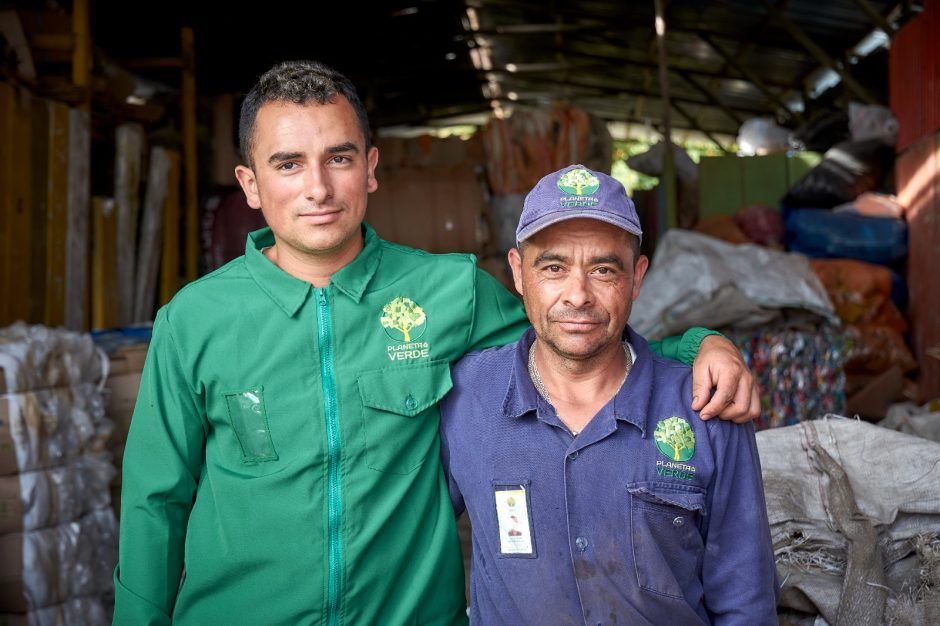
“I feel very proud about this enterprise and my work as a waste picker. This is how I earn a living. Right now, I am very happy about being close to securing a home and this shows how much can be achieved by working here.”
Planeta Verde was set up 22 years ago by a group of business administration students at the Catholic University Luis Amigo who wanted to create a business that made a difference and supported disadvantaged people.
“My fellow students and I were about to graduate and our dream was to generate employment for waste pickers by creating a co-operative,” says the co-op’s manager, Martha Elena Iglesias.
Ríonegro is located in the Antioquia region, where tens of thousands of people have been displaced as a result of the ongoing internal conflict. The UN Development Programme estimates 44% of Ríonegro’s population is poor.
“People from villages came to the cities and the only job they could get was as waste pickers,” says Iglesias.
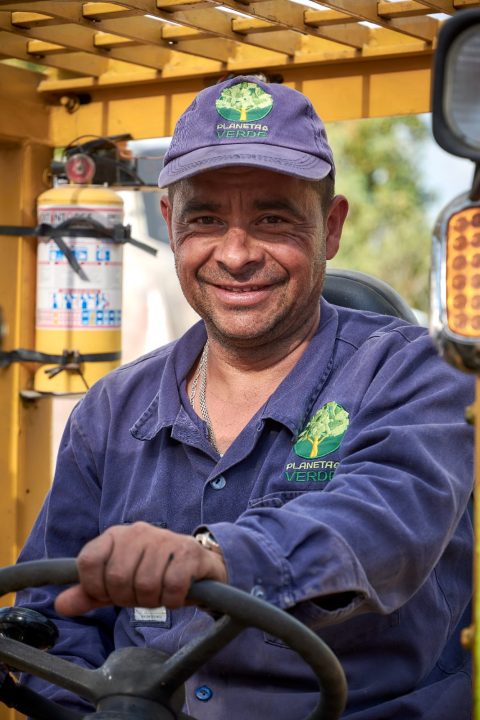
The co-op was set up when the dump that served Medellin, the capital city of Antioquia, was due to close, leaving Ríonegro with no option to deal with its waste.
“We thought it was an opportunity to formalise waste pickers and make a difference,” says Iglesias. “With workers coming from informal sector, it was difficult to convince them that together they could do more than individually. Waste pickers thought working by themselves was their only option but once they found out there were other possibilities, we were slowly able to convince them.”
Another barrier was the stigma surrounding waste pickers. “They were regarded as worse than the waste they collected,” says Iglesias. “They were associated with drugs and crime, so we had to change the society’s view to understand these are honest people, who are helping the planet while doing a difficult job.”
A positive step in this direction was taken in 2020, when, during the pandemic, waste pickers were recognised as essential workers. Since waste picker organisations are now recognised as a provider of public services, the co-op can receive a second payment in addition to the one received for selling the materials collected, allowing waste pickers to double their income.
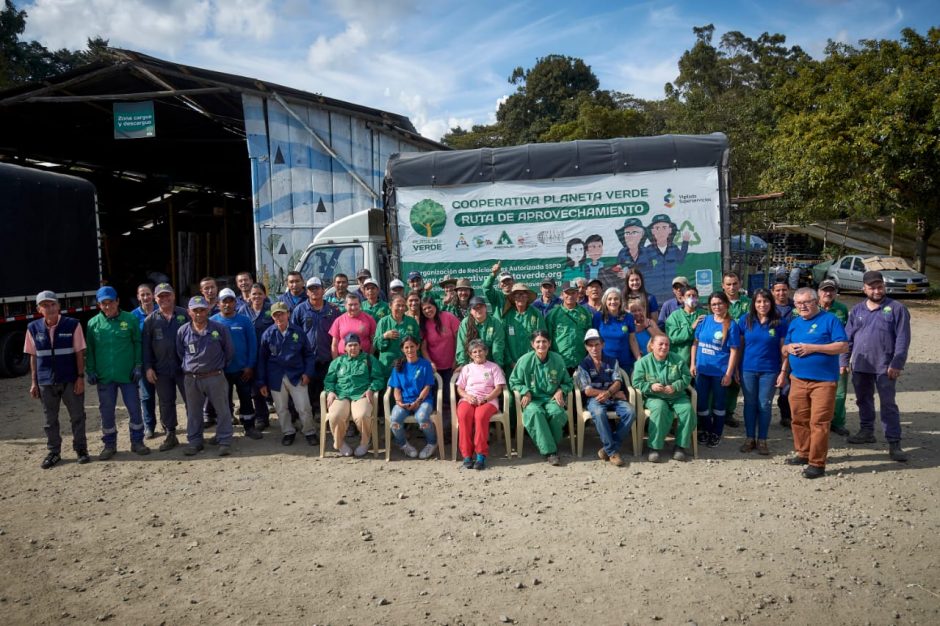
But the pandemic also tested the co-op’s resilience. Before the emergence of vaccines, exposure presented a high risk to waste pickers, especially those in vulnerable categories. So the co-op decided that its 35 members over the age of 65 would isolate while the rest continued to work to guarantee an income for everyone.
Solidarity did not stop here – the co-op provided food parcels to those who were isolating, with additional donations from the families it served.
Related: Wastepickers among those setting out their stall at platform co-op conference
“One of our members, Don Juan, who is 70, couldn’t go on his usual route because he had to isolate,” says Iglesias. “People from whom we would usually collect told the new waste picker they had saved their recyclables for him – and so they would give the new person what they had saved for him, along with money for him for food.
“People collected for themselves but also put some of the waste into the joint collection for those unable to work. This type of solidarity was only possible because we are a co-op.”
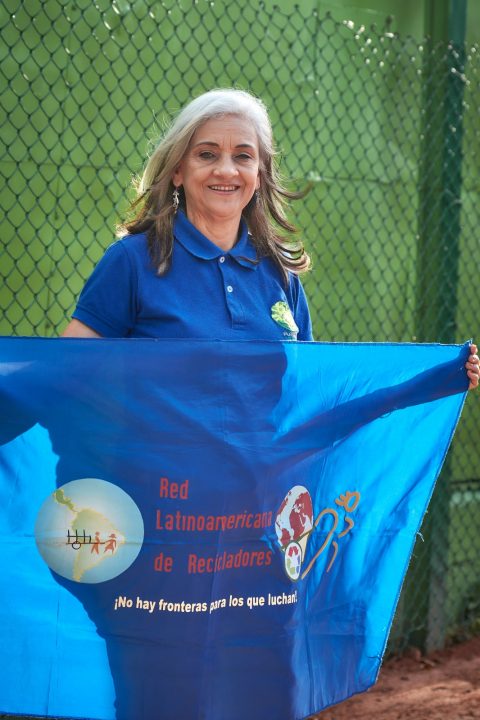
Despite these challenges, she thinks the pandemic let the co-op prove its worth. “Society understood that we had to continue to work otherwise the system would have collapsed.”
After the pandemic the co-op felt a glimmer of hope but rising inflation and the war in Ukraine led to higher petrol prices and operational costs. To make matters worse, the co-op started receiving lower prices, with some recyclable materials dropping in export value. Competition with private companies is also fierce, with big firms using the latest technology to pick up more waste. “When our colleagues take to the streets, sometimes there is nothing left,” says Iglesias.
Still, the co-op is able to maintain its member benefits. These include providing some free healthcare services such as glasses and dental prostheses, holiday bonuses, regular food parcels, social security and pensions. In December 2021 the co-op celebrated its first member retirement with a big party. Members also get training and skills: around 98% of its members can now read and write.
Going forward, Iglesias says the co-op will focus on growth, and would like to be more involved in industrialisation processes, building on the 2,500 tons recycled by the co-op each year – 70% paper and cardboard, 15% plastics, 10% metals and 5% glass.
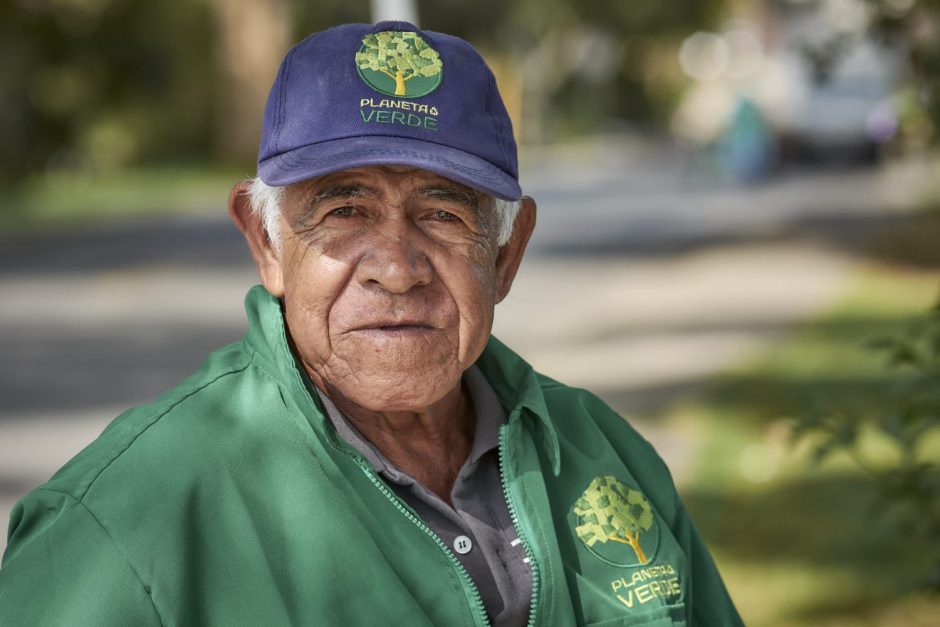
Another area of focus will be raising awareness of the role waste pickers play to ensure they are included when big decisions around recycling are taken by the government or local authorities.
Research conducted by Women in Informal Employment: Globalizing and Organizing (Wiego) and its Inclusive Cities partners found the economic crisis caused a marked drop in demand for and price for waste. At the same time, newly unemployed people entered the profession creating more competition.
Wiego’s regional coordinator for Latin America, Federico Parra, says that social and solidarity economy models such as co-operatives and mutuals can give workers in the informal economy access to the formal economy. With this come several benefits, from being formally employed and having social security to receiving training and being able to specialise. The latter is important for waste pickers who are elderly and can no longer work long hours on the street collecting waste.
Parra says waste pickers play two important roles: preventing contamination of the environment and providing raw material to industry. In Colombia where he is based, 40% of the cardboard and paper comes from recyclables, most of it from the hands of waste pickers. Wiego has developed tools to show the waste pickers how their activities cut greenhouse gas emissions. But despite the crucial role they play, waste pickers receive the lowest payments in the value chain.
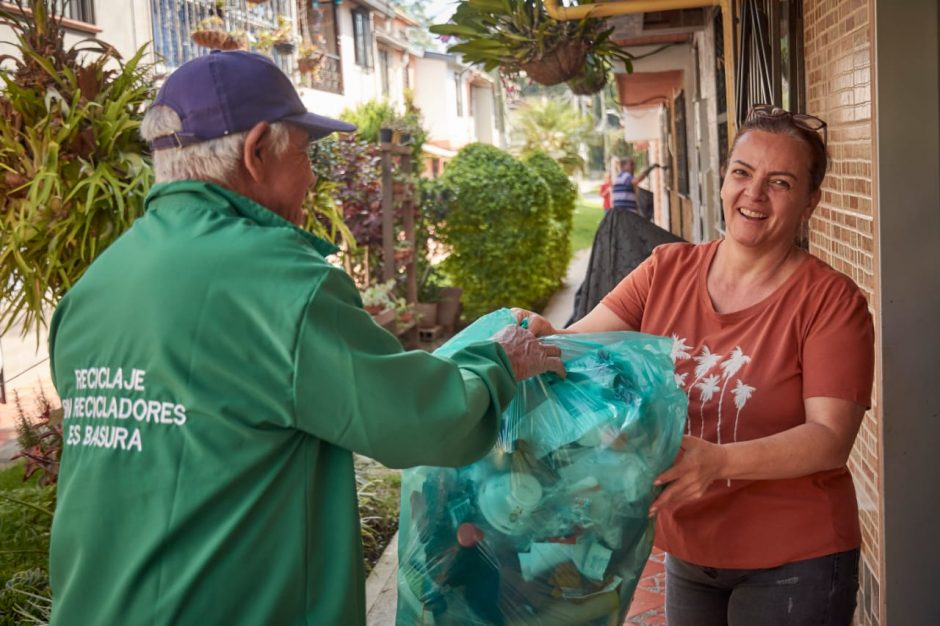
“You can work for 18 hours and collect 200 kilos of different materials. You want to sell one kilo of cardboard and you receive a 50 US cents – but the intermediary people sell it for 75 cents and the company or the corporation that uses the material can pay $1.50 per kilo.”
As members of a co-op the waste pickers can sell more together and gain some bargaining power. But of the 20 million people working as waste pickers around the world, only four million are in formal employment.
“Those waste pickers that were not organised continued to pick up waste during the pandemic – and being on the frontlines were among the most affected by it,” says Parra.
But in the co-op, waste pickers understood that together they could lobby the government and fight for access to the vaccine. The crisis also led to having an internal culture of self-protection. Challenges included not being able to meet in person with many waste pickers lacking smartphones, internet or mobile data to be able to join online meetings.
Inflation was another challenge. “In Argentina, one US dollar before the pandemic was 40 Argentine pesos, now it costs 200. In Colombia a dollar used to cost 1,700 pesos and now it’s 5,000. This implies reduced capacity to buy food. Co-ops tried to solve this by providing food for workers,” he said.
There were also issues around the price of structural materials such as glass, which became cheaper while being difficult to transport.
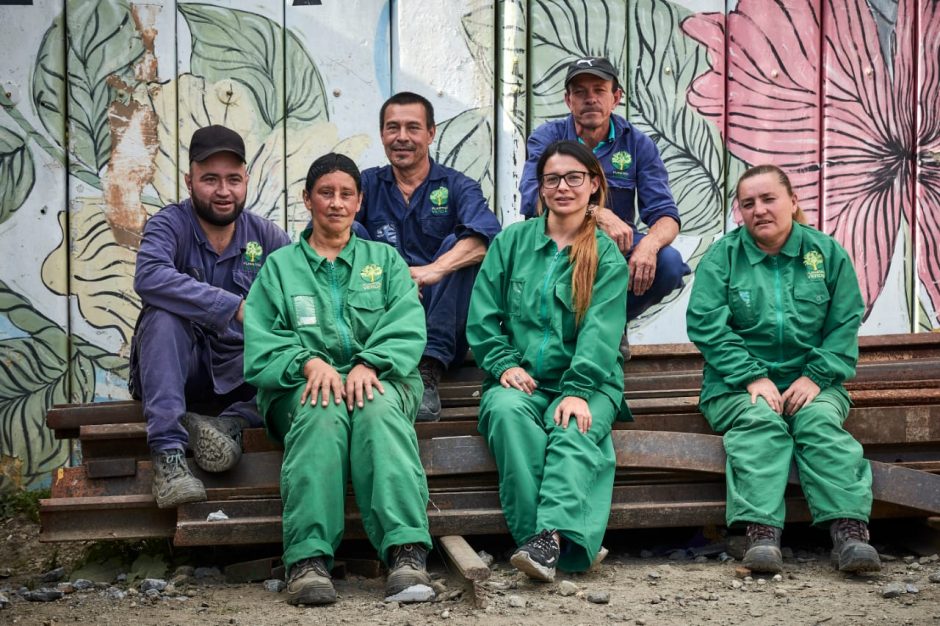
“So waste pickers have to choose – do we have to continue collecting glass? It is so expensive to move but so cheap! A lot of industrial centres that used to process recyclable materials closed – so they had to export recyclables. That transport puts an additional cost in the value chain process. And the waste pickers suffer the consequences of this price reduction.”
Once lockdown ended, the waste pickers realised there was even more competition in the informal economy because more people had lost their jobs and entered the market.
Regulation also changed in many countries with more governments adopting Extended Producer Responsibility strategies, which means all the environmental costs associated with a product throughout its life cycle are added to its market price.
Wiego warns that many Extended Producer Responsibility systems “don’t accept or recognise the role of co-ops”.
“It became a new business niche for many private corporations who started to do recycling – and not recognising that there were waste pickers’ organisations that had been doing this for ages,” says Parra.
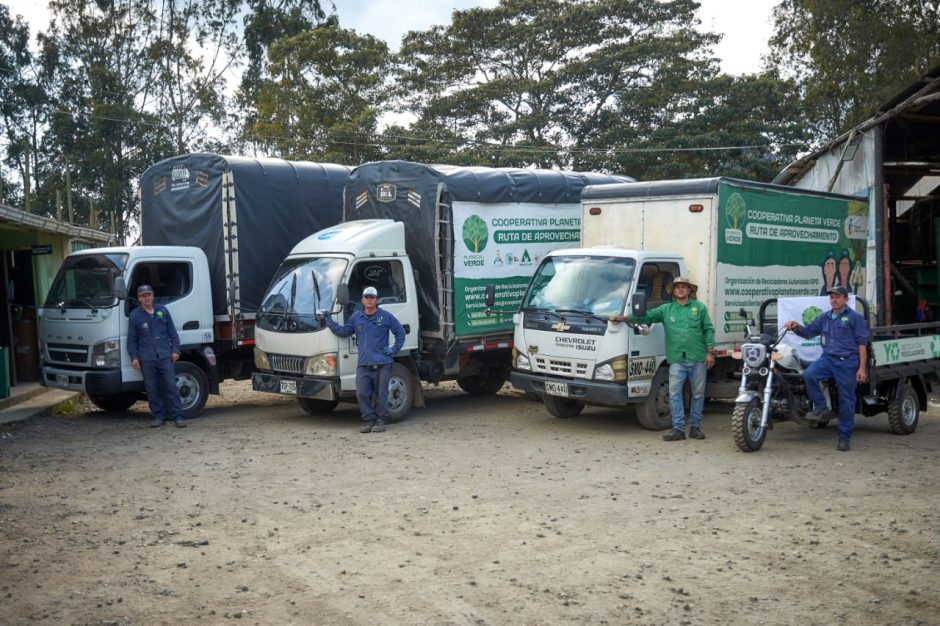
He adds that a just climate transition will need to take waste pickers’ livelihoods into account. In the meantime, Wiego intends to continue supporting workers in the informal economy as they try to secure their livelihoods – and wants more positive action from government to help.
“According to the ILO, 64% of the world’s employed population are informal workers,” says Parra. “They have no formal ways to organise themselves other than social and solidarity economy. Governments need to accept that co-ops are the future for these 64%.”

